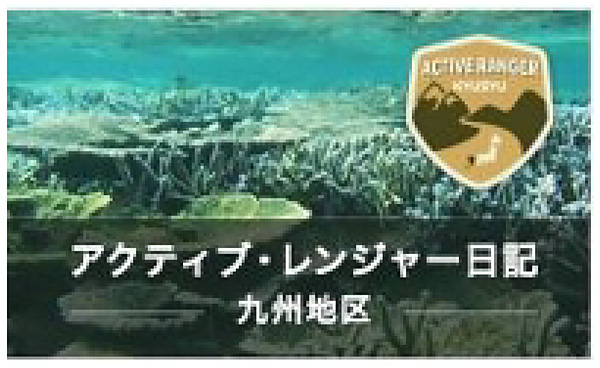The Work of the Yakushima Ranger Office
Yakushima Ranger Office Profile
The Ministry of the Environment’s Yakushima Ranger Office is attached to the Yakushima World Heritage Conservation Center. A total of nine people - three park rangers, two assistant rangers, one ecosystem conservation officer, one utilization and planning officer, one national park visitor use coordinator, and two office assistants work at the office and handle a range of activities including managing and operating the world heritage site and national park, activities promoting awareness, and running the Yakushima World Heritage Conservation Center.
Survey of Trends in Utilization of Yakushima Island Mountain Area (counter survey)
To collect basic information useful for managing the mountain areas of Yakushima Island, including the World Heritage site, we are conducting a survey of the number of people entering and leaving mountain areas using automatic counters.
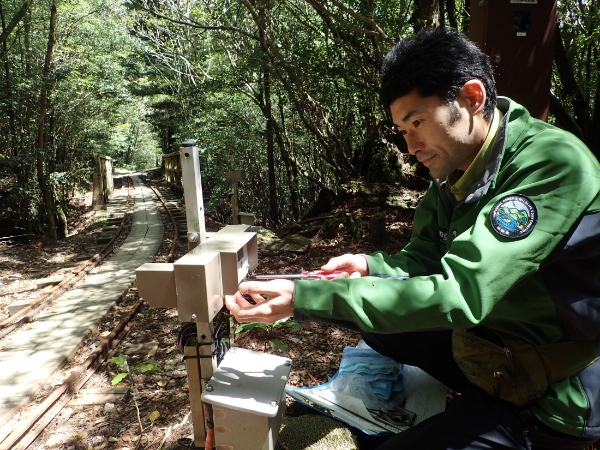
Managing Yakushima Deer
The growing number of Yakushima deer are damaging the ecosystem and reducing the amount of vegetation. Trapping and hunting on Yakushima Island is currently limited to animals and harmful birds and animals in the perimeter of the island. Almost no trapping and hunting is conducted in the densely populated Western Area, and in protected areas where many rare and endemic species live, and there are therefore concerns over damage to the ecosystem. As one part of ecosystem management, efforts are being made to create a scientific and planned system to manage the number of individual animals within the protected areas including the World Natural Heritage site.
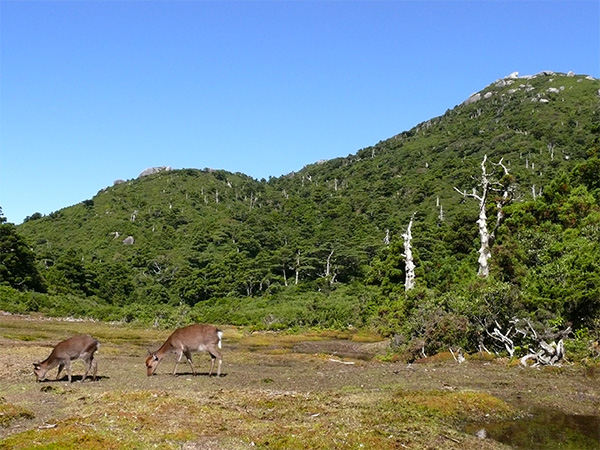
A Yakushima World Heritage Site Area Scientific Council forYakushima Deer Task Force was established and is introducing applied management while receiving scientific advice from experts.
Trail and Beach Patrols
To protect the natural environment of the national park and to allow more people to enjoy and use the park properly, rangers patrol hiking trails and the shoreline, collect and monitor information on the natural environment, inspect and repair facilities, and check for violations.

Protection of Rare Plant and Animal Life
A wide range of plants and animals live within the Yakushima Island National Park. Monitoring and conservation activities are focused on the rare animals, plants and endangered species within the park.
The Erabu flying fox inhabits Kuchinoerabu-jima Island and has been designated as a wild domestic endangered species. Local residents are engaged in various activities associated with the animal, including preservation work and observation parties. A leaflet was prepared in 2020 to bring together various information, including the ecology of the Erabu flying fox and cautions for observation. It also includes cute illustrations drawn by Kuchinoerabu-jima Island elementary and junior high school students.
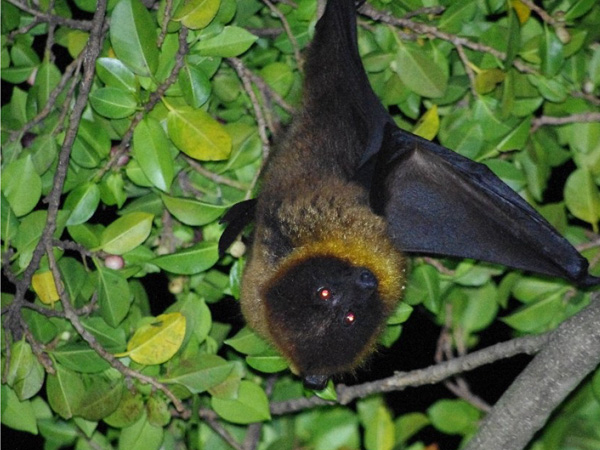
Yakushima Island was registered as a World Heritage site due to its highly-rated vertical distribution of plant life and its primeval forests of Yakusugi Cedar and other giant tree varieties. A wide range of vegetation grows in the forests of Yakushima Island depending on elevation. A pamphlet was prepared in 2020 to explain this diversity in the plant environment and the rarity of the vegetation. We hope this will help you understand the profound qualities of the forests of Yakushima Island.
Promoting Awareness
School Visits
To teach Yakushima's children about the magnificence and importance of the island's natural environment, assistant rangers visit local schools to give lessons on several topics including world heritage sites, national parks, and the island’s natural environment.
Contact the Yakushima Ranger Office for inquiries on joining these lessons.
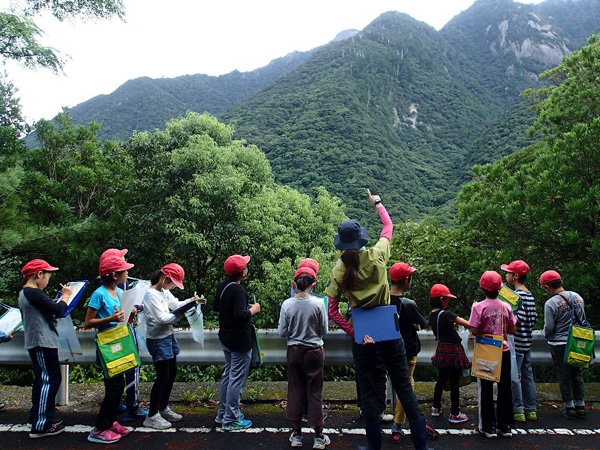
Communing With Nature Gatherings
The Ministry of the Environment promotes physical and mental health through communing with nature, and conducts such events to foster an interest in, and an understanding of nature. As part of these activities, Yakushima Island co-sponsors with Yakushima Town and the Yakushima Environmental and Cultural Foundation a Nature Observation Group designed to encourage residents to develop a closer familiarity with nature.
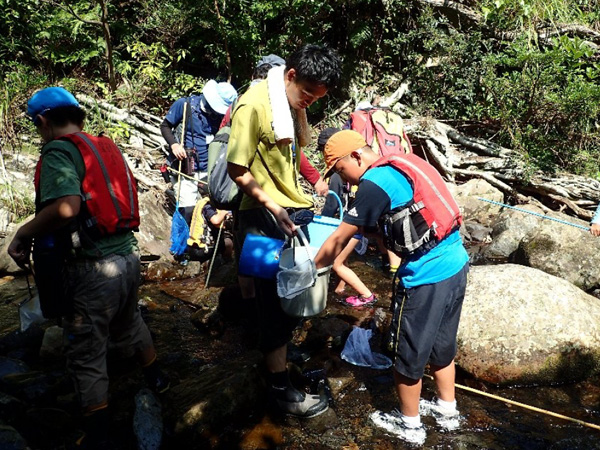
Assistant Ranger Diary (Kyushu region)
An active ranger is an assistant to a ranger of the Ministry of the Environment. Rangers manage national parks and rare local wildlife, while active rangers are primarily responsible for on-site work such as patrols, visitor guidance, research, and nature commentaries. Assistant rangers assigned to the Kyushu region, which includes Yakushima Island, provide information on a range of issues including thoughts on their daily work and state of the national park, in the form of a diary.
